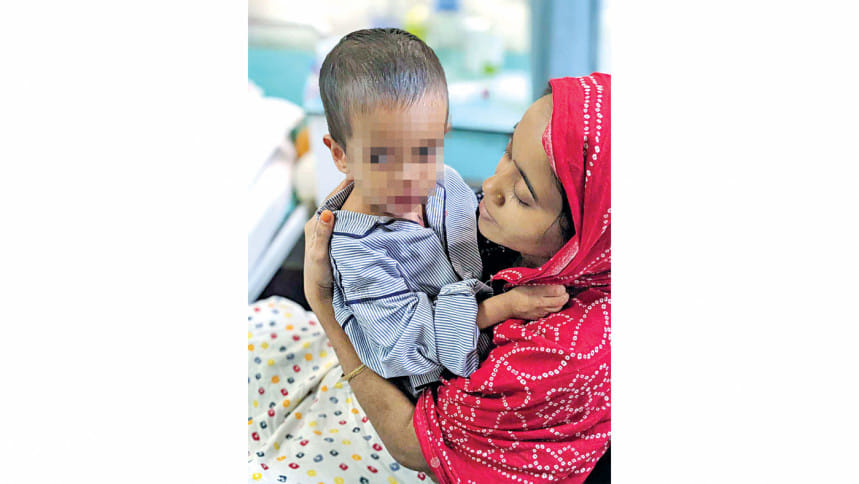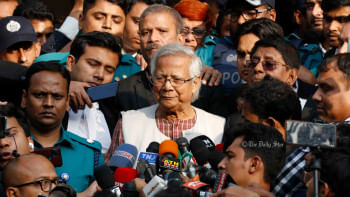Healing the little hearts

Over 30,000 babies are born annually in the country with congenital heart defects, with only 3,000 of them having access to surgeries, according to Bangladesh Journal of Cardiac and Thoracic Anaesthesiology, 2023.
The main reason behind this imbalance is usually the treatment costs that mount from Tk 1 lakh to Tk 4 lakh -- a financial burden low-income families often fail to sustain.
Yet, Nusrat Jahan Rima, a two-year-old from a marginalised household in the remote Rowmari upazila of Kurigram, was fortunate enough to avail surgery.
Born with a substantial ventricular septum defect, Rima's parents failed to understand her condition initially until she was diagnosed by a doctor in Rangpur who recommended urgent surgery.
The doctors had asked the family to arrange Tk 2 lakh for the surgery. However, the family was only able to gather Tk 40,000, even after collecting funds from local schools and markets.
That was when the family came across Basic Needs Program, a US-based charitable organisation who promised to take care of the expenses.
"The surgery was done last year and the cost was about Tk 2.5 lakh, of which the charity donation covered Tk 2 lakh," said Asma, Rima's mother.
Around 80 others like Rima, including 10-year-old Rafi from Ramu; 17-year-old orphan Linda from Rangpur; six-year-old Ayesha from Barishal; and 2-year-old Nure Jannat from Dinajpur, were also able to avail open-heart surgeries with aid from the charity.
The surgeries are being done since 2021 in partnership with National Institute of Cardiovascular Diseases, Ibrahim Cardiac Hospital and Research Institute, Dhaka Shishu Hospital and Evercare Hospital Dhaka.
Furthermore, 60 children underwent successful cardiac catheterisation at Shishu Hospital during this period.
Dr Richard Hubbard, a US-based pediatric cardiac anesthesiologist who founded the organisation and currently serves as its president, said, "An overwhelming number of patients in Bangladesh need help and we usually get requests for assistance from cardiologists and hospitals."
The Basic Needs Program usually covers 75 percent of the total costs for the needy, hoping the family will take care of the rest depending on their situation, he added.
"Our procedure involves meeting the family at their residence located anywhere in the country once the partnering hospitals estimate the medical costs. We support them through regular home visits from admission to follow-ups," said Shamimur Rahman, country director for Bangladesh.
Speaking of challenges, Dr Hubbard said fundraising is one of the toughest issues at the moment as the organisation is solely reliant on private donations.
"Private gifts are only used for surgeries while administrative costs are covered separately, ensuring that each extra donation directly contributes to a child's surgery," he added.
The organisation plans to partner with more hospitals outside Dhaka to promote decentralised pediatric heart surgeries.
Dr Rokonuzzaman Selim, senior cardiac surgery consultant at Ibrahim Cardiac Hospital, said "They fund surgeries for children from impoverished families who may never have the ability to afford heart surgery in their lifetime."

 For all latest news, follow The Daily Star's Google News channel.
For all latest news, follow The Daily Star's Google News channel. 




Comments